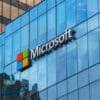I have been hearing about “Solid State Hard Drives” in some PC magazines and things that I read. What is a solid state hard drive, and why would I want one? Will it make my data more protected?
Hi Randoll, A solid state drive (SSD) is very simply a hard drive that has flash storage in it as opposed to spinning metal platters (Think of it as a bunch of USB thumb drives mashed all together into a hard drive’s casing). These have some major benefits over conventional magnetic hard drives including access time, power consumption, as well as general throughput (speed). Another significant advantage is the fact that they have no moving parts.
Standard hard drives fail for any number of reasons, almost all of which relate to their mechanical parts. Solid state drives have none of these, and as such are not subject to the same reasons for failure.
I’ll go over the advantages of a sold state drive in detail:
Advantages:
- No moving parts – This one is fairly all-encompassing as the remaining advantages are directly related to it, but anyhow.. A standard hard drive writes its data magnetically to a spinning metal disk (or disks) inside of it. In order for this to work it takes several pieces: You have the platters themselves, the arms, the read/write heads, the motor, etc. If any one of these pieces fail you are hosed. The heads fly just microns above the surface of the disk and are susceptible to vibration. As soon as you have the head touch the disk then the platter is damaged – thus crashing the drive. Motors fail over time, and if the drive can’t spin the platters then the data cannot be accessed. The magnetic bits must be brought to the head, the head cannot go to them. A solid state drive uses flash chips for storage, so vibration is not a concern. Obviously if your drop-kick your SSD off of a rooftop it won’t work, but as a general rule they can take quite a bit more abuse than a standard hard disk.
- Less power consumption – Because of #1 SSD drives are more simple. They have less to them parts-wise, which means that there are less pieces to feed power to. Currently in a laptop a hard disk will go into power saving mode by stopping the platters from spinning. This is a good idea, but the next time that you have to access your disk then you have to wait for the platters to spin back up which causes quite a bit of latency. With a solid state drive you don’t have to worry about any of this. If you’re not actively accessing the drive, then it’s not really using any power. (Obviously it uses some, but nowhere near what its magnetic counterpart would)
- Faster access times – Once again, directly related to #1. Since the drive doesn’t have to wait for a read head to reach a certain portion of a magnetic disk, data can be accessed effectively instantaneously. Also because of this it can keep accessing the subsequent information much faster and transmit it. Effectively, the bottleneck is usually drive’s connection to the PC.
Disadvantages:
- Cost – Currently these things are expensive. I am talking sell your child on the black market expensive. As of the time of this writing, a 128 GB SSD is $3,219.99. It’s OK. You can cry. The 64 GB model isn’t much better, coming in at a whopping $1,533.99.
- Limited write cycles – Flash storage wears out after a certain amount of writes to it. The number that it can sustain completely depends on the exact type of flash storage used, and can vary from 100,000 writes to over a million. For a USB drive this isn’t an issue at all. For a hard drive, where data can theoretically be written and deleted constantly, it’s a problem.For most consumers it won’t be an issue, however, it could be in a server situation where logs, etc are written to almost constantly.
- Cost – Did I mention that a 128 GB drive is over three thousand dollars? A comparable magnetic disk at 160 GB is roughly $50.
While I will whole-heartedly endorse the acquisition of a SSD in the future, currently I’d say hold off. Regarding making your data more secure (I assume against crashes) then yes, I suppose it will. However, you should be backing up your data regardless. SSD’s are just as susceptible to viruses and the like as they perform exactly the same functions; and I’ve absolutely no idea how or if data recovery on a solid state drive would work.
In closing, if you’ve not recently backed your data up then it’s time to bust out the ole stack of DVD-R’s.







You must be logged in to post a comment Login